Unveiling the Worst Laundry Detergents: What to Avoid for Your Health and the Planet
Have you ever wondered why some laundry detergents leave your clothes feeling less than fresh? I remember the frustration of dealing with lingering stains and itchy skin, only to discover that not all detergents are created equal. Some are filled with chemicals that not only fail to clean but also pose risks to our health and the environment. It’s disheartening to think that our efforts to maintain cleanliness could inadvertently harm the planet. Let’s explore these pitfalls together, so you can make informed, healthier choices for your family and our Earth.
Identifying the Worst Laundry Detergents: A Closer Look
In the quest for the perfect laundry detergent, some products disappoint. This section explores which detergents fall short in performance and marketing claims, helping you make informed choices for cleaner, healthier laundry.
Top Underperforming Laundry Detergents
Not every laundry detergent delivers on its promises. Consumer Reports’ tests reveal that some detergents barely outperform water. For instance, Aldi’s Laundrite Laundry Liquid scored just 50% in front loader tests, performing as poorly as water. Similarly, Re.stor Pre-measured Laundry Detergent Sheets managed only 52%, while Surf Tropical Capsules and Earth Choice 3 in 1 Triple Action Laundry Capsules scored 53% and 54%, respectively.
Other underperformers include Coles Lemon Laundry Liquid, Biozet Attack Sensitive Liquid, and Coles Ultra Concentrate Sensitive Laundry Liquid, all scoring between 54% and 55% in front loader tests. Detergent sheets and capsules often disappoint, with Lucent Globe Ultra Concentrated Laundry Detergent Sheets scoring a mere 56%.
In top loader tests, water alone scored 45%, with Aldi Green Action Laundry Liquid only slightly better at 46%. These results underscore the importance of choosing detergents wisely, as many fail to deliver effective cleaning.
Laundry Detergents with Deceptive Marketing Claims
Many detergents fall short of their marketing claims. Gain detergent, known for its scent, lacks effective stain removal. Xtra detergent, though affordable, is often seen as watered down and ineffective. True Living detergent offers savings but struggles with tough stains.
Purex detergent has trouble with basic stains like lipstick and coffee, while Era detergent is ineffective against both basic and tough stains. Arm & Hammer detergent pods and Sun detergent also perform poorly against common stains such as chocolate and grass.
These products often rely on marketing that emphasizes scent or affordability but fail in actual cleaning performance. Prioritizing effectiveness over marketing claims is crucial when selecting a detergent.
Identifying the Worst Laundry Detergents: A Closer Look
Choosing the right laundry detergent is crucial for both your health and the environment. Unfortunately, some products on the market promise more than they deliver. Let’s explore which detergents fall short and why it’s essential to scrutinize their claims.
Top Underperforming Laundry Detergents
In my journey towards a non-toxic lifestyle, I’ve learned that not all laundry detergents live up to their promises. According to Consumer Reports, some detergents barely outperform water. This is concerning, especially when you’re aiming for clean and fresh laundry. For example, Aldi’s Laundrite Laundry Liquid scored a mere 50% in front loader tests, performing almost like water. Re.stor Pre-measured Laundry Detergent Sheets and Surf Tropical Capsules aren’t much better, with scores of 52% and 53% respectively. Their minimal cleaning power leaves much to be desired.
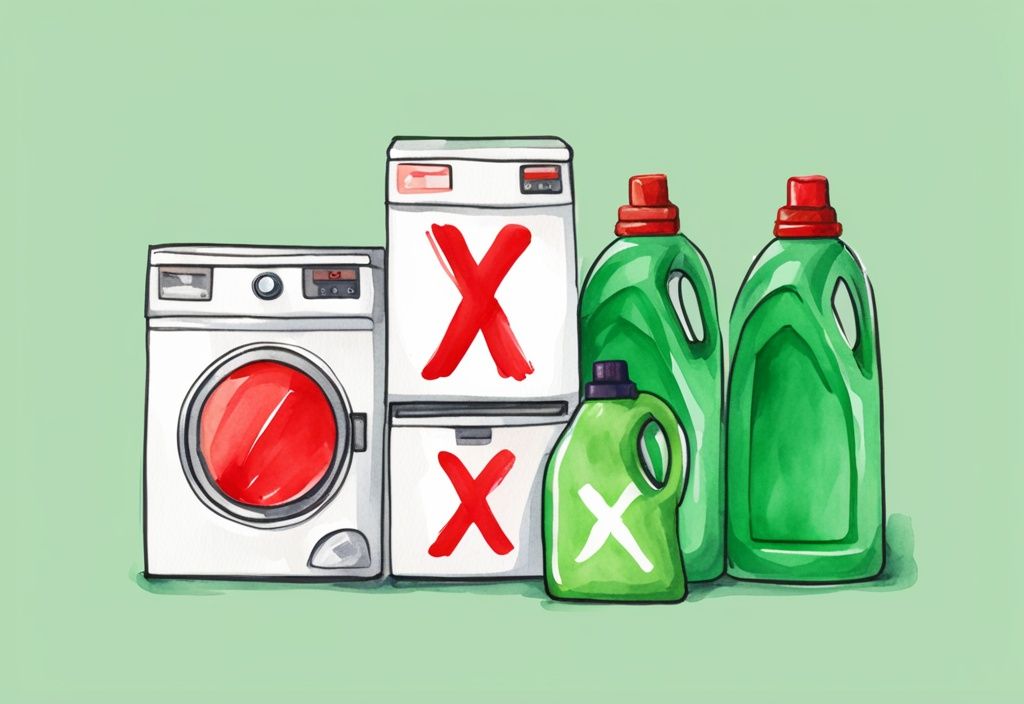
Other products like Earth Choice 3 in 1 Triple Action Laundry Capsules and Coles Lemon Laundry Liquid scored around 54%, offering only slight improvements. Even Coles Ultra Concentrate Sensitive Laundry Liquid and Lucent Globe Ultra Concentrated Laundry Detergent Sheets, which scored 55% and 56% respectively, didn’t impress me. In top loader tests, water alone scored 45%, and Aldi Green Action Laundry Liquid only managed a 46% score. Detergent sheets and capsules often underperform, making it essential to choose wisely.
Laundry Detergents with Deceptive Marketing Claims
Many detergents promise stellar results but often fail to deliver. Gain detergent, for instance, is known for its pleasant scent but struggles with stain removal. Xtra detergent, though budget-friendly, is often criticized for being too diluted. True Living detergent might save you money, but it struggles with tough stains, leaving you disappointed.
Purex detergent also falls short, especially with basic stains like lipstick and coffee. Era detergent is similarly ineffective, failing to remove both basic and tough stains. Arm & Hammer detergent pods don’t tackle stains adequately, and Sun detergent performs poorly against common stains like chocolate and grass. These examples highlight the importance of looking beyond marketing claims and choosing detergents based on proven performance.
Why Some Laundry Detergents Perform Poorly
Understanding why some laundry detergents fall short can help you make better choices for your laundry needs. Let’s explore how water conditions and certain ingredients can impact detergent performance.
How Water Conditions Affect Detergent Effectiveness
Water conditions significantly influence how well a detergent works. In areas with hard water, which is rich in calcium and magnesium ions, detergents often struggle. These minerals can bind with detergent molecules, making it difficult for them to dissolve and clean effectively. Even top-rated detergents can leave clothes looking dull and stained in such conditions.
To tackle this, some detergents are designed with water softening agents. Alternatively, you might consider using water softeners or boosters alongside your detergent. Adjusting for your water conditions is key to avoiding the pitfalls of the worst laundry detergents and achieving the clean clothes you desire.
Common Ingredients That Don’t Live Up to Their Promises
Many detergents promise stellar cleaning results but don’t always deliver. Take laundry detergent strips, for example. While they are convenient, they often lack the concentration needed for tough stain removal, leaving you disappointed with the results on heavily soiled clothes.
Optical brighteners are another common ingredient. They make fabrics appear cleaner by reflecting light but don’t actually remove dirt or stains. This can be misleading, as your clothes may look brighter but remain unclean.
Additionally, ingredients like Sodium Lauryl Sulfate (SLS) and Sodium Laureth Sulfate (SLES) are known for their lathering ability, which can give the impression of thorough cleaning. However, they aren’t particularly effective at stain removal and can irritate sensitive skin. It’s wise to be cautious of detergents that rely heavily on these ingredients, as they may contribute to the reputation of being among the worst laundry detergents.
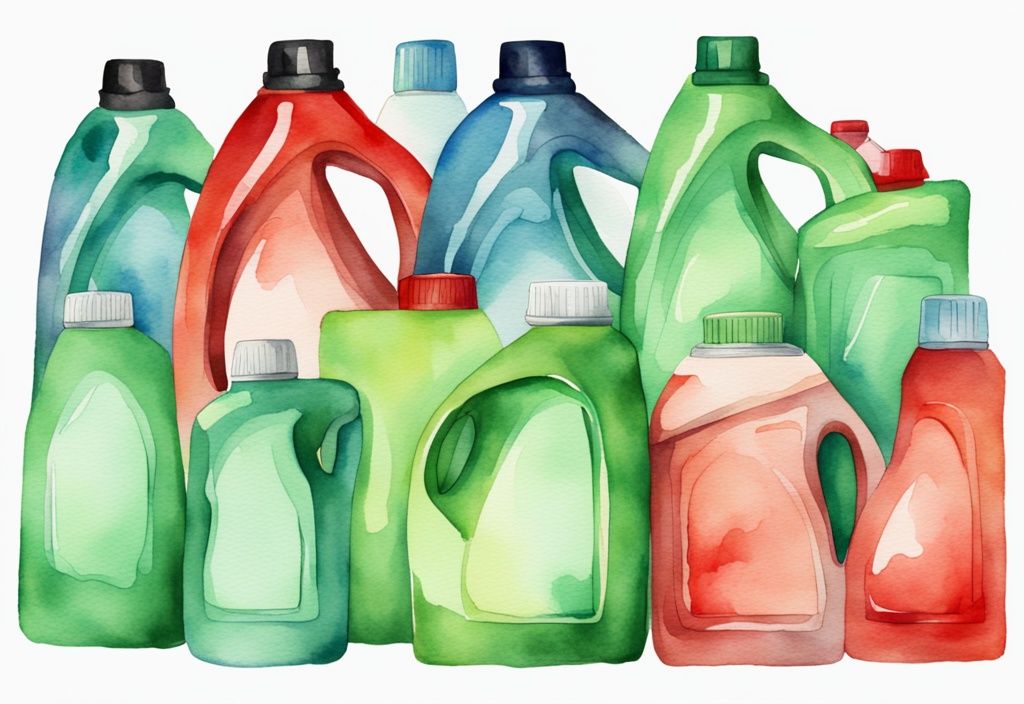
The Health and Environmental Hazards of the Worst Laundry Detergents
The worst laundry detergents are not just ineffective; they harbor a range of chemicals that can harm both health and the environment. Understanding these risks is crucial for making safer choices.
Dangerous Chemicals Found in Low-Quality Detergents
Many of these detergents are laden with chemicals that can disrupt your well-being and the planet’s balance. Take phthalates, for example. These are often used for fragrance but are known hormone disruptors and are tough on aquatic ecosystems due to their persistence in the environment.
Then there’s Sodium Lauryl Sulfate (SLS) and Sodium Laureth Sulfate (SLES). These ingredients might make your clothes feel clean, but they can irritate your skin and harm aquatic life. And let’s not forget optical brighteners. They don’t clean but only make fabrics appear brighter, often causing skin irritation and lingering in water sources.
Chlorine bleach, a common whitening agent, is corrosive and releases toxic gases, posing threats to both humans and aquatic environments. Formaldehyde, sometimes lurking in these detergents, is a recognized carcinogen that can lead to skin and respiratory issues.
Quaternary Ammonium Compounds (Quats) are another concern. They’re linked to antimicrobial resistance and can be irritants. The presence of 1,4-Dioxane, a probable carcinogen, is alarming due to its association with liver and kidney damage. Nonylphenol Ethoxylates (NPEs) disrupt hormone function and persist in the environment, underscoring the importance of careful product selection.
Environmental Impact of Using Ineffective Detergents
The environmental toll of using these ineffective detergents is significant. Their non-biodegradable nature contributes to water pollution, impacting aquatic ecosystems and biodiversity.
Switching to eco-friendly detergents can help mitigate these effects. By choosing products free from harmful chemicals and designed to biodegrade, you can reduce your environmental footprint. This shift not only protects aquatic life but also supports a healthier planet.
Embracing eco-friendly options empowers you to make a positive difference, aligning with the growing movement towards sustainable living. It’s a step towards a cleaner, safer world, proving that small changes can have a big impact.
How to Avoid the Worst Laundry Detergents
Choosing the right laundry detergent can feel daunting, especially with so many options claiming to be the best; to better understand the environmental impact of your choices, you can learn more here. Here, we’ll explore what makes a detergent truly effective and how to steer clear of those that fall short.
Essential Features of a Good Laundry Detergent
In my journey towards a healthier lifestyle, I discovered that the key to a great laundry detergent is its ability to tackle stains head-on. A detergent should not only clean but also protect your health and the environment. Look for products that are free from harmful chemicals like phthalates and Sodium Lauryl Sulfate (SLS). These substances can be harsh on both our bodies and the planet.
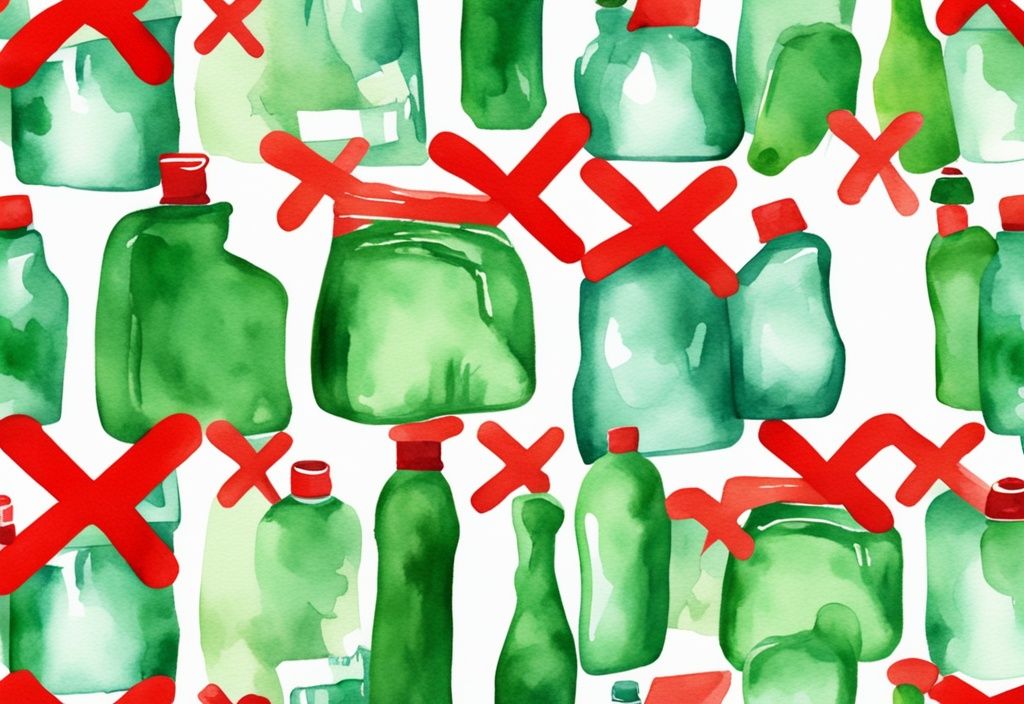
Eco-friendly and biodegradable detergents have become my go-to choices. They break down naturally, minimizing pollution and safeguarding aquatic life. It’s also wise to check consumer reviews and ratings. I’ve found that positive feedback often points to a detergent’s reliability and effectiveness, helping me make informed decisions.
Proven Tips for Steering Clear of Bad Detergents
Reading detergent labels has become second nature to me. They reveal crucial details about ingredients and their potential impact. Be cautious of flashy marketing claims that promise miracles but fail to deliver. These can often mask a product’s shortcomings, leading to unsatisfactory results.
Consider what matters most to you. Whether it’s skin sensitivity, specific fabric types, or washing machine compatibility, your needs should guide your choice. Sharing your experiences and reviews can be empowering. By joining a community of informed consumers, you can help others avoid ineffective detergents and encourage brands to improve their offerings.
FAQ
What Makes a Laundry Detergent One of the Worst?
I’ve found that the worst laundry detergents often fail in several key areas. They might not clean well, leaving clothes looking dull and lifeless. Harsh chemicals can linger, irritating sensitive skin and triggering allergies. These detergents can also be a burden on the environment, releasing toxins into our water systems. And let’s not forget the frustration of spending more money on a product that doesn’t deliver results. It’s a lesson I’ve learned the hard way, and I want to help you avoid the same pitfalls.
Are Eco-Friendly Detergents Always More Effective?
Eco-friendly detergents hold a special place in my heart for their environmental benefits. However, their cleaning power can vary. It’s important to do a bit of homework—look for those with a proven track record. I’ve tested a few myself and found some gems that balance eco-friendliness with effectiveness. It’s a journey worth taking for both our health and the planet.
How Can I Identify Harmful Chemicals in My Detergent?
Reading labels has become second nature to me. Look out for ingredients like phthalates, SLS, optical brighteners, and formaldehyde. These can have serious health and environmental impacts. I remember the first time I realized what these chemicals could do, and it changed the way I shop. A little research goes a long way in protecting your home and loved ones.
What Should I Do If My Detergent Isn’t Cleaning Properly?
We’ve all been there—clothes coming out of the wash not quite clean. I suggest trying a different detergent with better reviews. Sometimes, adjusting the amount used or adding a booster can make a difference, especially with hard water. For more information on related topics, you might also be interested in learning about titanium cookware health risks. If needed, rewash your clothes and steer clear of low-performing detergents in the future. It’s about finding what works best for your needs.
Conclusion
In our journey towards a cleaner, healthier lifestyle, picking the right laundry detergent is crucial. The consequences of using the worst laundry detergents go beyond just leaving stains behind; they can also impact our health and the environment. These detergents often contain harsh chemicals that may irritate the skin and contribute to pollution. Understanding what goes into these products is key to making informed decisions.
I’ve learned that paying attention to the ingredients and effectiveness of detergents can make a big difference. By avoiding components like phthalates and optical brighteners, we can protect both our health and the planet. Choosing detergents with proven cleaning power and eco-friendly formulas can help minimize these risks.
Sharing our experiences and staying informed through the latest research and reviews can guide us away from the traps of the worst laundry detergents. By exchanging knowledge, we can make better choices together, ensuring our laundry routines are both effective and safe. This collective effort not only improves our well-being but also supports a healthier planet.
Hi, I’m Olivia Green, the voice behind nontoxicways.com. I’m passionate about helping you make the shift to a healthier, non-toxic lifestyle without feeling overwhelmed. I love sharing my personal journey, from small changes to big transformations, along with practical tips that make it all feel doable. My goal is to inspire and guide you toward a lifestyle that benefits both your well-being and the planet. Let’s take this journey together, one simple step at a time!
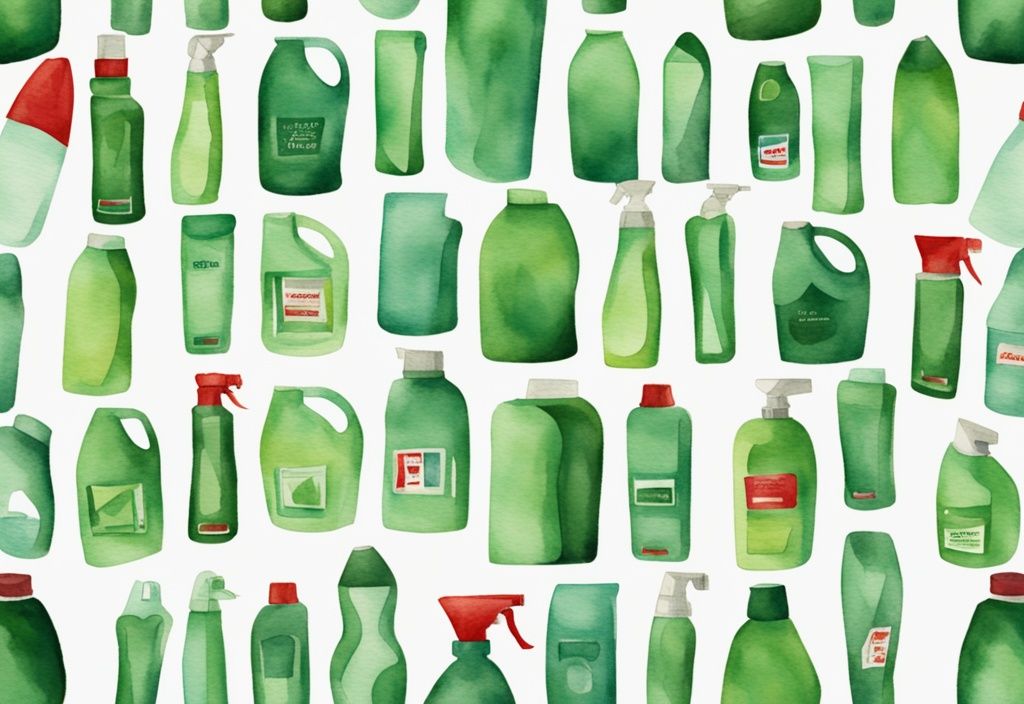
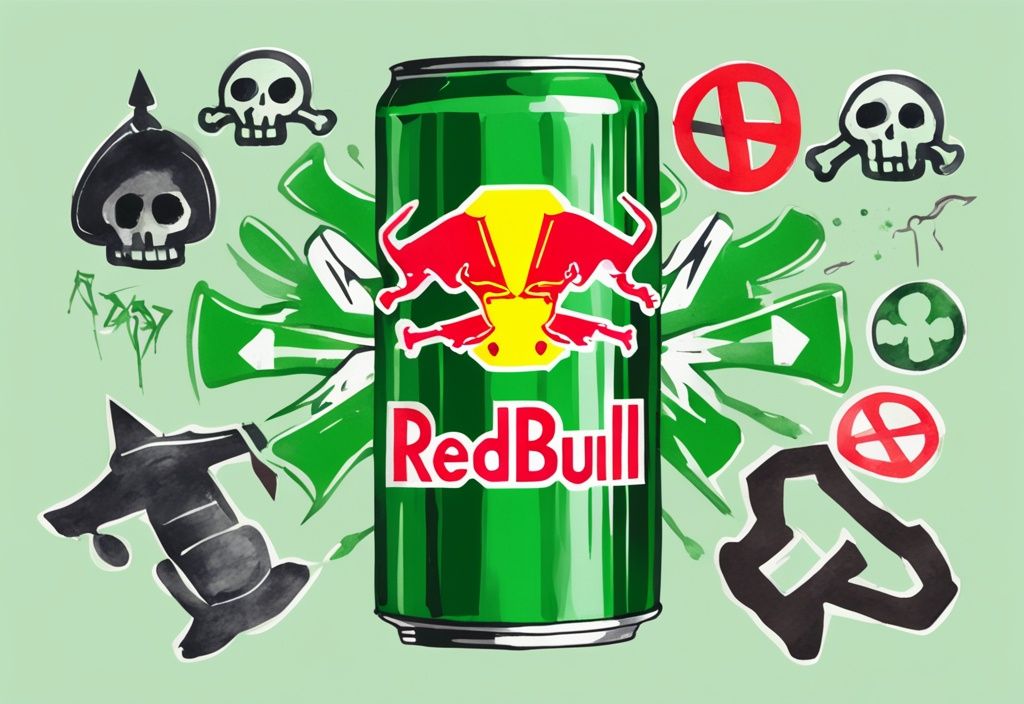

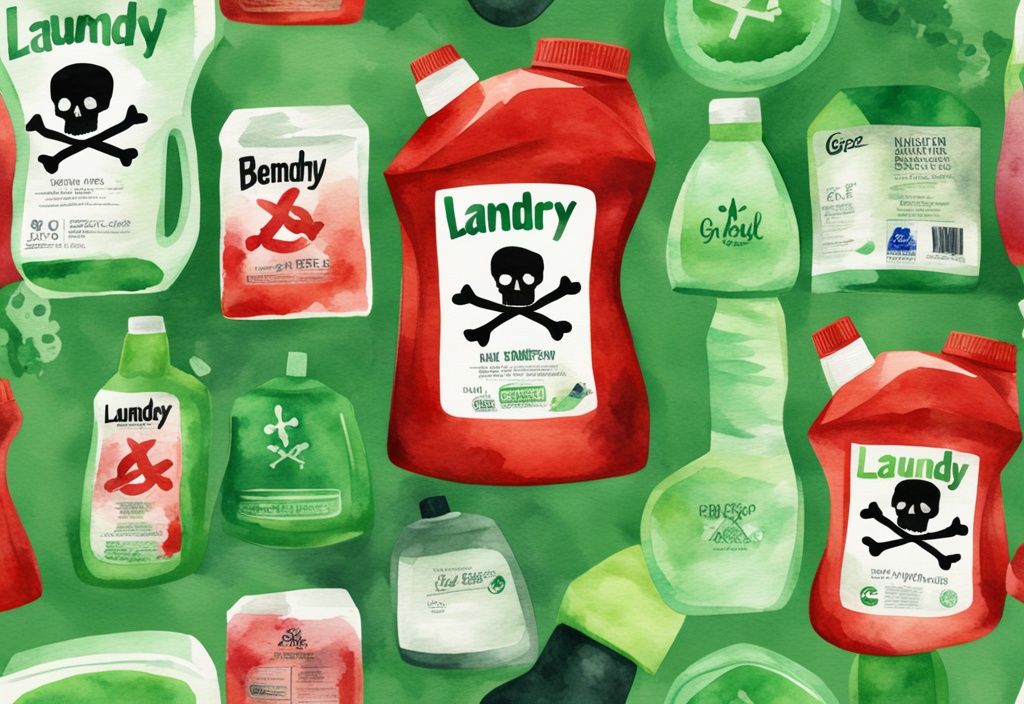
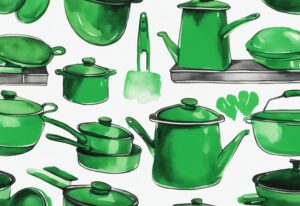




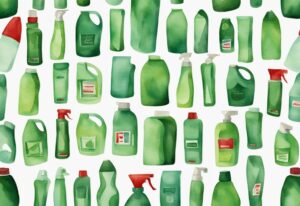
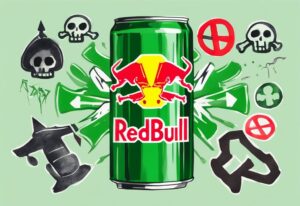

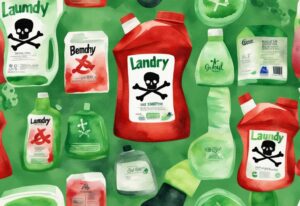

Post Comment